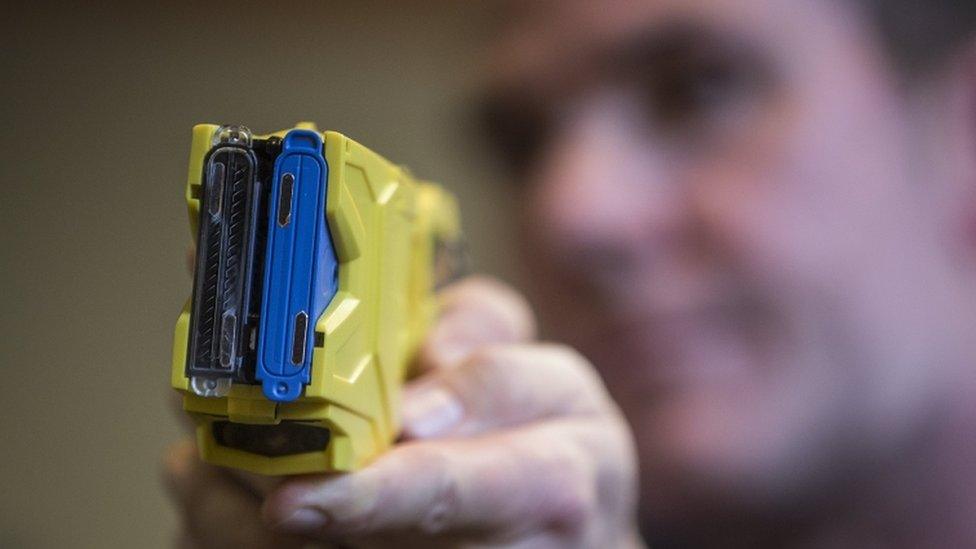Tasers used 58 times in mental health settings
- Published
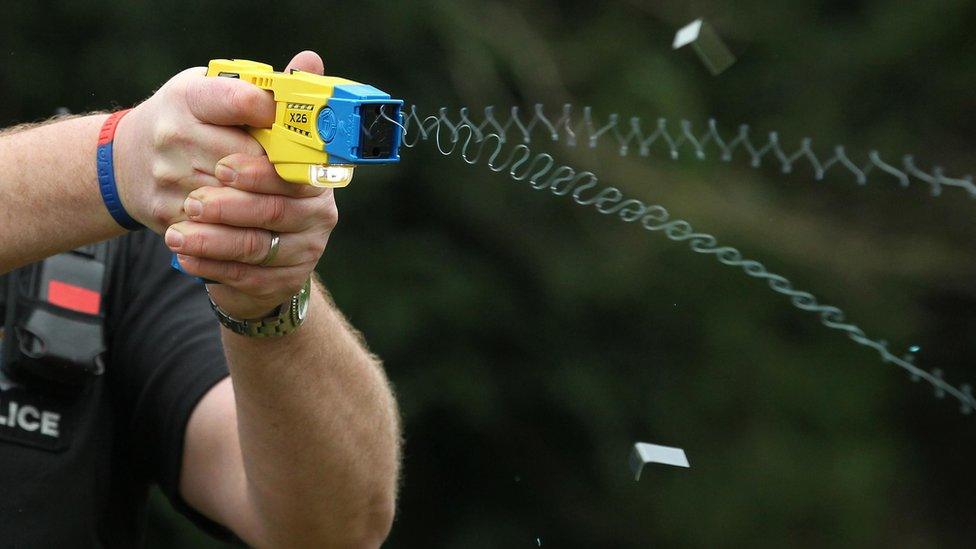
Police drew, aimed or fired Tasers in mental health hospitals, wards, and clinics 58 times in the first six months of figures being recorded.
The government says a Taser should be a last resort - but campaigners say they should never be used in such settings.
The data, from 43 UK area forces, covers the six months to September 2017, when Tasers were fired 22 times.
Three used Tasers on people under 17. On two of those occasions the Taser was fired, once at a 15-year-old girl.
The Police Service of Northern Ireland and the Met Police were the only UK area forces that failed to respond to BBC Radio 5 live's Freedom of Information request.


Pat Kenny said he was treated like a criminal
The private security company at Pat Kenny's hostel called the police when he was self-harming in the reception area.
"I was at a stand-off with the police for about 15 minutes," he says.
"After 15 minutes they didn't know how to deal with it, so they Tasered me.
"I won't say it's painful but extremely uncomfortable and it's like you seize up. You can't move.
"And the officer started shouting at me aggressively, 'On the ground, on the ground.'
"And I was like, 'No, I'm still standing,' while I was trying to get to the cables to get them out and that's when they hit me with a second Taser."

Liberal Democrat MP Norman Lamb said: "It's not appropriate to use this technology in a mental health setting… particularly when it's used against young people.
"There are circumstances in which force is necessary - when there is an immediate threat to life, either to the life of the individual concerned or to someone else's life," he said.
But, he added: "It's very hard to imagine the circumstances in which Tasers are necessary in any situation in mental health settings.
"Before they were designed and invented we got by without them, so is it not possible to get by without them in this day and age?"
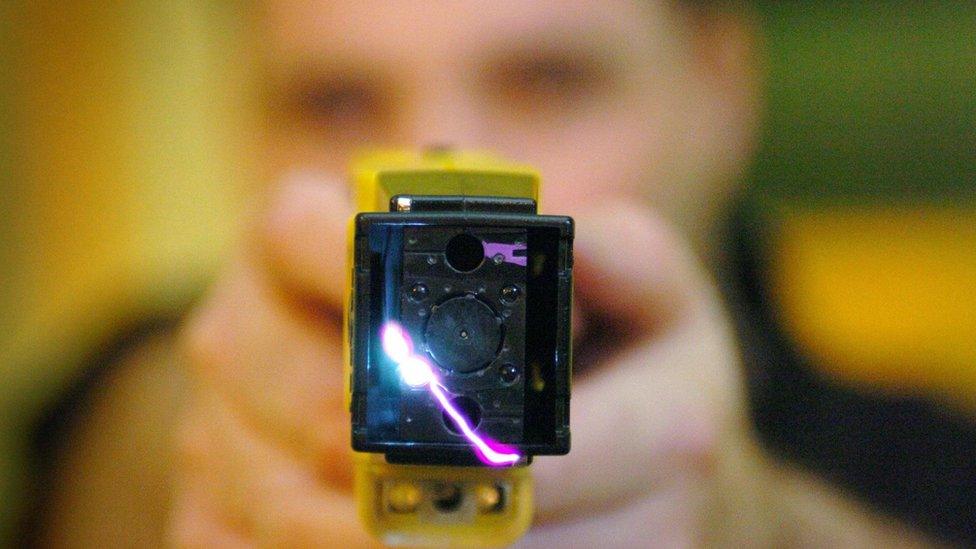
The government said recording data on Taser usage should provide more accountability
The government said Tasers were "an important tactical option for specially trained police officers, but their use in mental health settings should only be a last resort and, where possible, staff trained in de-escalation techniques should always be the first response".
A spokesman added officers who used them had to complete a comprehensive training process.
For Pat Kenny, although he believes a Taser shouldn't have been fired at him, he does think it led to him getting the help he needed.
"It finally got me into a proper assessment," he says.
"I'd been falling through the net for years.
"Now, I had the diagnosis of depression and PTSD [post-traumatic stress disorder] and borderline personality disorder.
"If anything, it did stop me falling through the net."
You can hear more on BBC Radio 5 live's Breakfast programme on Thursday 1 February from 06:00 GMT and on the BBC iPlayer.
- Published5 July 2017
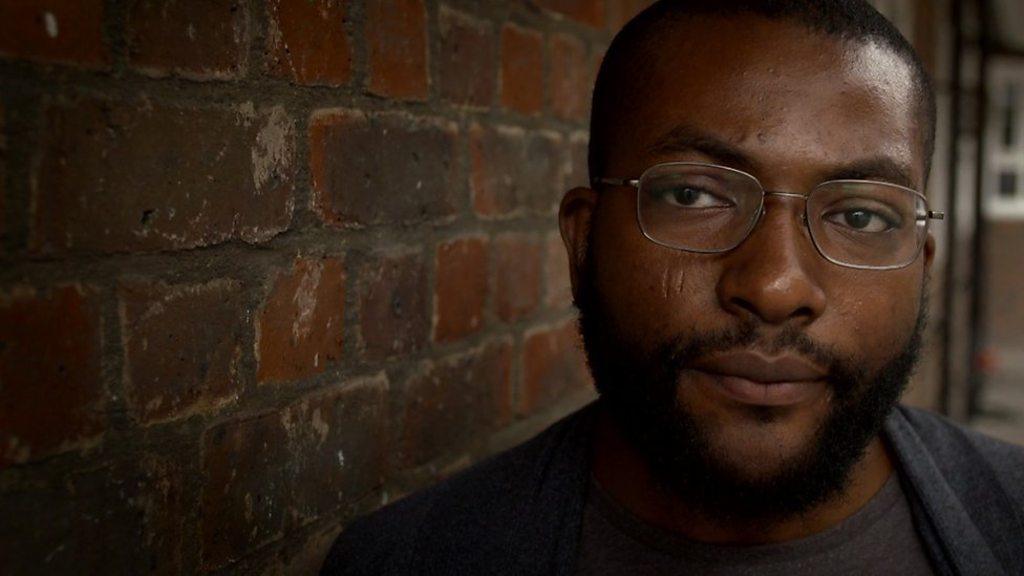
- Published31 January 2018
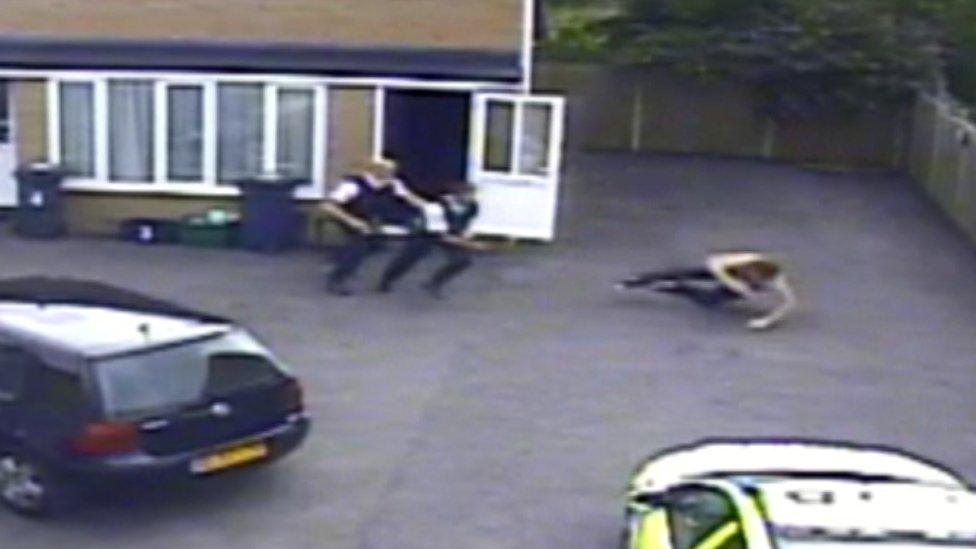
- Published2 March 2017
